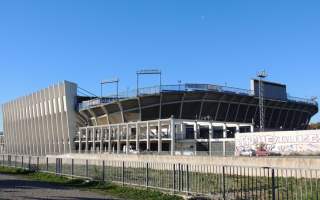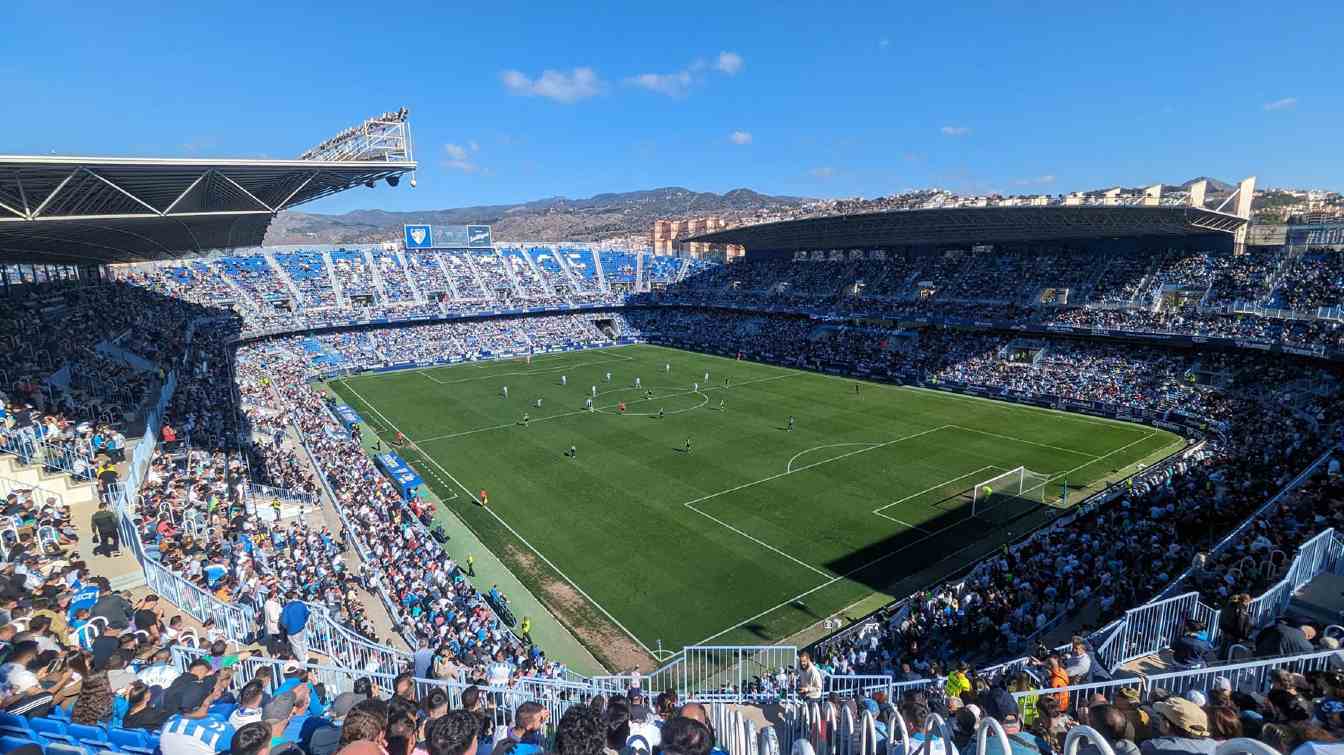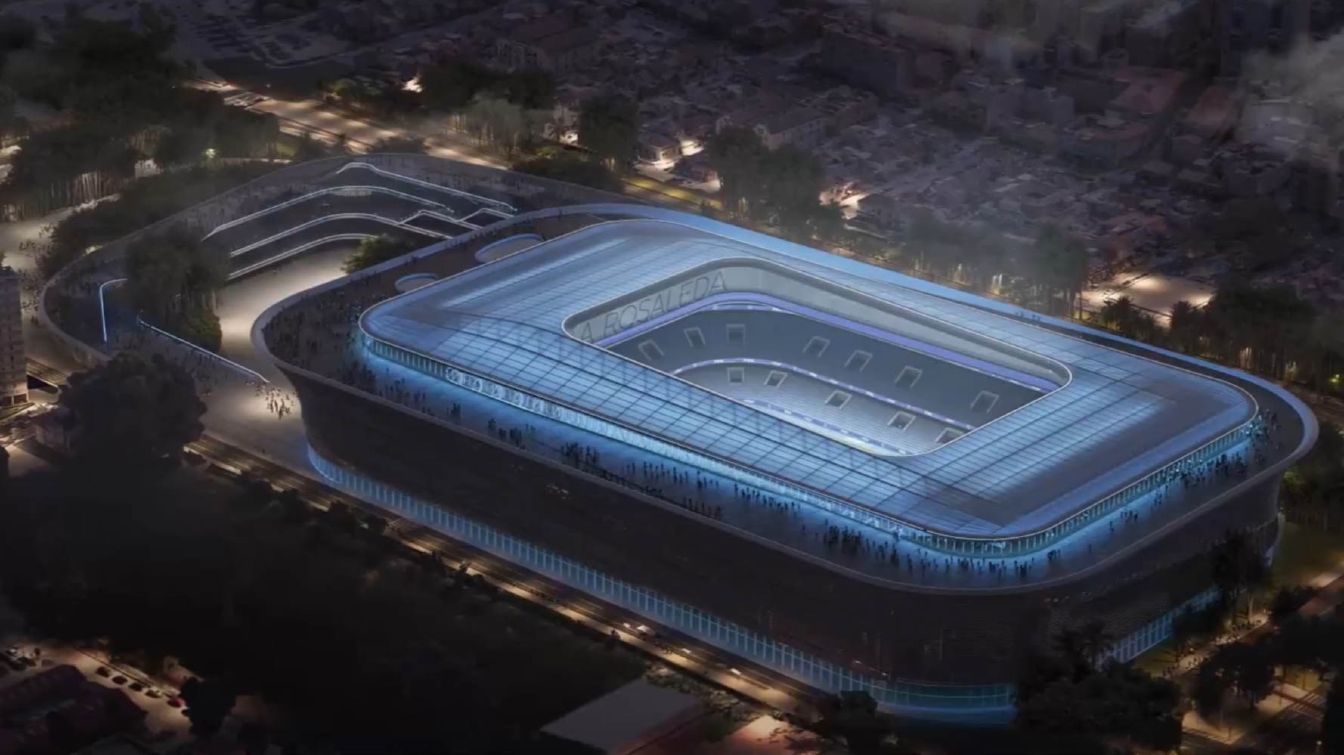Spain: €300 million, World Cup and fans’ anger – battle over future of La Rosaleda
source: StadiumDB.com; author: Jakub Ducki
 The exclusion of Málaga from the list of 2030 FIFA World Cup host cities has sparked a heated debate over the future of La Rosaleda stadium. At the centre of the discussion are the issues of financing, location and ownership of a new venue for Málaga CF.
The exclusion of Málaga from the list of 2030 FIFA World Cup host cities has sparked a heated debate over the future of La Rosaleda stadium. At the centre of the discussion are the issues of financing, location and ownership of a new venue for Málaga CF.
Advertisement
“The best decision for Málaga, even if unpopular”
Antonio Jesús López Nieto, a former football referee from Málaga, has long held a clear stance on the stadium issue. The solution is the right one. Going all in is not the right choice. We quickly committed to the World Cup, allocating €300 million in public investment to bring two matches here. (…) The decision that has been made is the best one for Málaga and for Málaga CF. This is public money,
he stressed.
López Nieto recalls that the current La Rosaleda is among the 10–12 best stadiums in Spain and gives the club good exposure. However, he warns against a scenario in which, if the court ruling favours Sheikh Al-Thani, the city would reward
him with a stadium worth €300 million. Let’s be consistent and think about it,
he urged.
In his view, Málaga CF does not currently need a new stadium, and funds should be spent with guaranteed future revenue. I want a great stadium, but above all I want a great team that needs that stadium, and not a stadium that doesn’t have a team,
he concluded.
Possible private, public or mixed stadium
During an extraordinary session dedicated to the 2030 World Cup and La Rosaleda, mayor Francisco de la Torre confirmed that all ownership models – private, public or mixed – are being considered. He stressed that the city, the province and the Junta de Andalucía remain in contact on the project.
De la Torre pointed out that if Málaga CF regains financial stability and is promoted to the Primera División, a new owner could finance the stadium on their own. He also admitted that redevelopment of the current La Rosaleda should not exceed a capacity of 45,000 seats, although in the future as many as 60,000 could be needed.
The mayor also returned to the issue of road infrastructure, stressing the need to improve connections around Martín Carpena and the port. He said he was disappointed by the cancellation of a meeting with the Secretary of State for Transport, which was to address this investment.
Boos at stadium and political epilogue
The August final of the Trofeo Costa del Sol brought the mayor one of the most uncomfortable moments of his career. During the trophy presentation ceremony, Málaga CF fans booed him and chanted Out, out!.
The anger of the supporters stemmed from the failure to secure World Cup matches and the decision to abandon La Rosaleda’s redevelopment.
This event fits into the broader context of unrealised projects in Málaga – from the auditorium and the Repsol towers to the failed bid for Expo 2027. In recent years, the city has repeatedly announced major investments that never came to fruition.
September – start of a new chapter
De la Torre announced that in September the technical specifications for the new stadium would be ready. The location study is expected to take 2–3 months, with a decision on the site to be made by the end of the year or early next year.
The mayor listed four potential locations: Puerto de la Torre, San Cayetano, a plot near the university and an area near Monte Coronado. He stressed that the advantages and disadvantages of each option would be analysed. The three administrations are going hand in hand,
he assured.
Ultimately, the venue is planned to have a capacity that would allow expansion to 60,000 seats or more. De la Torre wants the project to be developed with maximum citizen participation
and full transparency.
If the stadium remains in place, the mayor declared that the site would be allocated to other uses to revitalise the La Palmilla neighbourhood – from residential projects to cultural facilities such as a science museum.
Advertisement
 StadiumDB
StadiumDB
